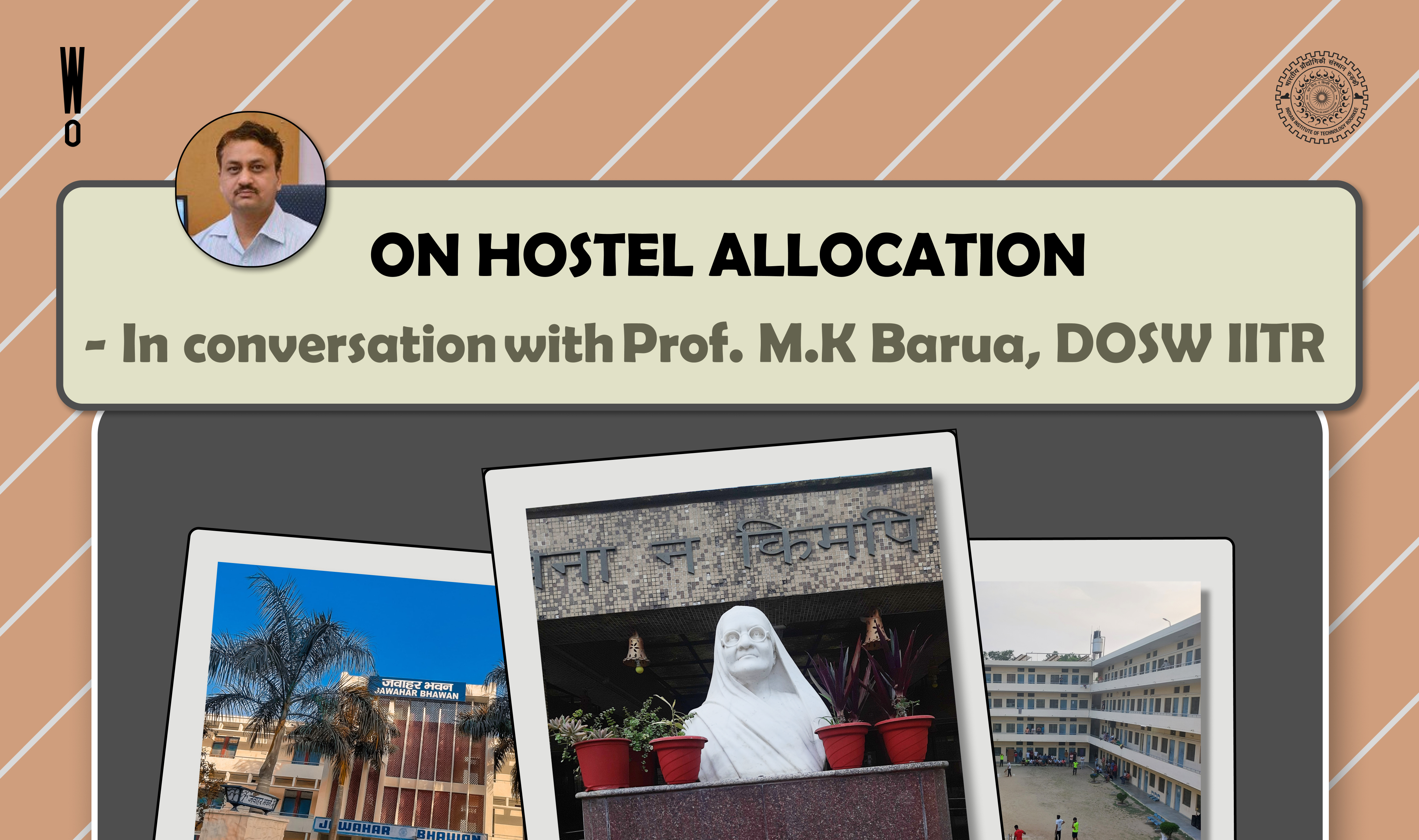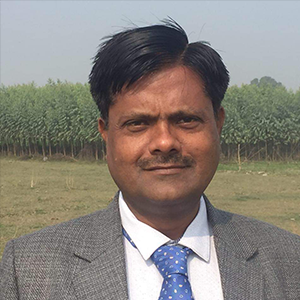

Body of IITR

Samarthaya: To lead the transformation was organised by Unnat Bharat Abhiyan, IIT Roorkee on 2nd & 3rd April. Samarthaya aims to work as a platform which brings Self Help Groups (SHGs), farmers, NGOs, industry experts and students together. Under this, multiple events were organised with varying themes like elevating rural India, women empowerment, and leadership building.
Following our interview with Mrs. Alka Joshi, here are a few excerpts from our interview with Mr. Heera Lal, who is the Additional Mission Director of the National Health Mission and is also the honorary mentor of the Model Gaon Project.
WO: Could you please introduce yourself?
Mr Heera Lal: I am Heera Lal. I have been an IAS officer in Uttar Pradesh, since 2010. I am currently posted as the Additional Mission Director, National Health mission and as the Additional project director, AIDS control society, UP, headquartered in Lucknow. Additionally, I am the honorary mentor of the Model Gaon Project. This project is more of a hobby for me, and I work upon it during my days off. It aims at the development of villages and the overall wellbeing of the villagers.
WO: Could you please elaborate some more on the Model Gaon Project?
Mr Heera Lal: Model Gaon Project works under the leadership of Mr. Muneesh, who is a retired CGM. The project’s office is in Lucknow. It comprises a team of 5.
It has 3 main components i.e., Village Manifesto, Change Makers, and Farmer producer organisation (FPO) aka Farmer producer company. Village Manifesto can be created by visiting the website of the project.
We felt that villages were lacking behind in terms of development in multiple areas. Upon diagnosis of said underdevelopment, we came across three reasons for the same. The villagers were unaware of the level of development of villages, and the areas that needed development. Moreover there is no demand for development among the villagers.
The village manifesto aims to eradicate these issues by making the residents aware of the need for development. Under the ‘changemakers’ division, people interested in working towards village upliftment are empowered by providing them with practical knowledge. The changemakers learn from the people who make a livelihood from cattle farming, etc. and try to replicate it within their village.
WO: What is the concept of FPO?
Mr Heera Lal: It is said that agriculture is a loss making business. This is the reason that many people are opting out of it. So, under FPO, that is Farmers Producer Organisation, we encourage people to replace agri activities with agri businesses. The state government promotes FPO and provides assistance to the farmers. Thus, the villagers form the FPOs, run it and share its profit and loss among themselves. Villagers, now, have become the owners of their companies.
WO: What was your contribution in the Model Gaon project?
Mr Heera Lal: I was the collector of Banda for 1.5 years. Through the initiatives along with active participation of the public, Banda showed a massive improvement of 18.5% in crop production. The situation of malnutrition also improved. Also, there was a 10.5% increase in the voter turnout in the Lok Sabha election of 2019, which was one of the highest in Uttar Pradesh. The level of groundwater rose by 1.34 cm. This facilitated the creation of Banda as a model gaon. We aim to extend this project to various villages, and spread these benefits around the country.
WO: What is the main idea and philosophy behind the Model Gaon Project?
Mr Heera Lal: Our philosophy is based on the concept of republic village, proposed by Mahatma Gandhi. Also, it is similar to a scheme launched by Dr. APJ Abdul Kalam which aimed to provide urban amenities to rural areas. We are trying to convert to reality, the theory of republic villages and to bring the dreams of Gandhiji and Dr. Kalam to life. This does not follow a top down model, but rather a bottom up approach.
WO: Why do you feel that there is a need for a bottom up approach rather than the top down approach?
Mr Heera Lal: The ones sitting in air conditioned offices and working aren’t completely aware of the issues at the ground level. The plans, thus made, tend to ignore the ground level issues and thus such plans tend to receive resistance from the villagers. So, Model Gaon is planned, implemented and organized by the people of the village. Unlike the top down approach, this is based upon public participation, and thus allows for better participation and enthusiasm from the public.
WO: How has the implementation of the project been ensured?
Mr Heera Lal: The project was launched on Jan 1,2022. Since then, we have been trying to grab the attention of various people, by conducting webinars and contacting the heads of various departments in a village. We also enlighten the people of Anganwadi movement, NRLM, teachers and the youth of today about the project and its objectives. After gaining sufficient knowledge about the same, people try to implement itt in their villages. We help them by connecting them with experts and relevant authorities. So, gradually, due to the active participation of the villagers the development of villages starts.
WO: You started your career in 1994 as a government official. What according to you is the importance of a government official in the development of our country?
Mr Heera Lal: We aspire to be a developed country which will not be possible until the majority of our population is developed. And this majority of the population, approximately 70%, resides in rural areas.So, due to this very fact, Gandhi focused on republic villages, and we started the Model Gaon Project. Even the population in urban areas is very much dependent on the rural areas for most of the things. Thus,for the progress of the country, rural development cannot be ignored.
WO: In what ways can we, as students who were born and raised in urban areas, can help in your mission?
Mr Heera Lal: Students should try to learn the social structure and how to survive in society. Unnat Bharat educates the students about the same and makes them aware of the environment. Raised in urban areas, they know only about 30% of the country and tend to have no knowledge about the villages. To live a successful life, one must have the knowledge of both urban and rural areas, and about their management. Unnat Bharat provides a platform for the students to learn about rural management and help in developing them.